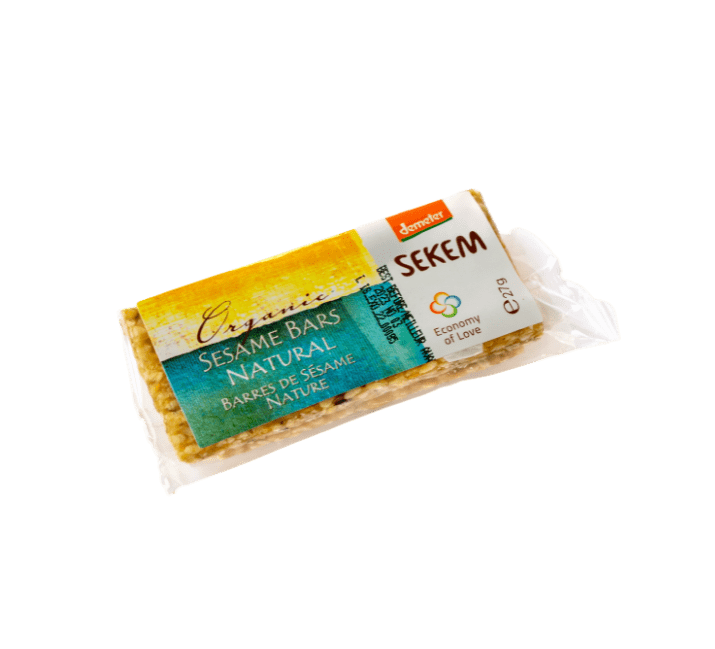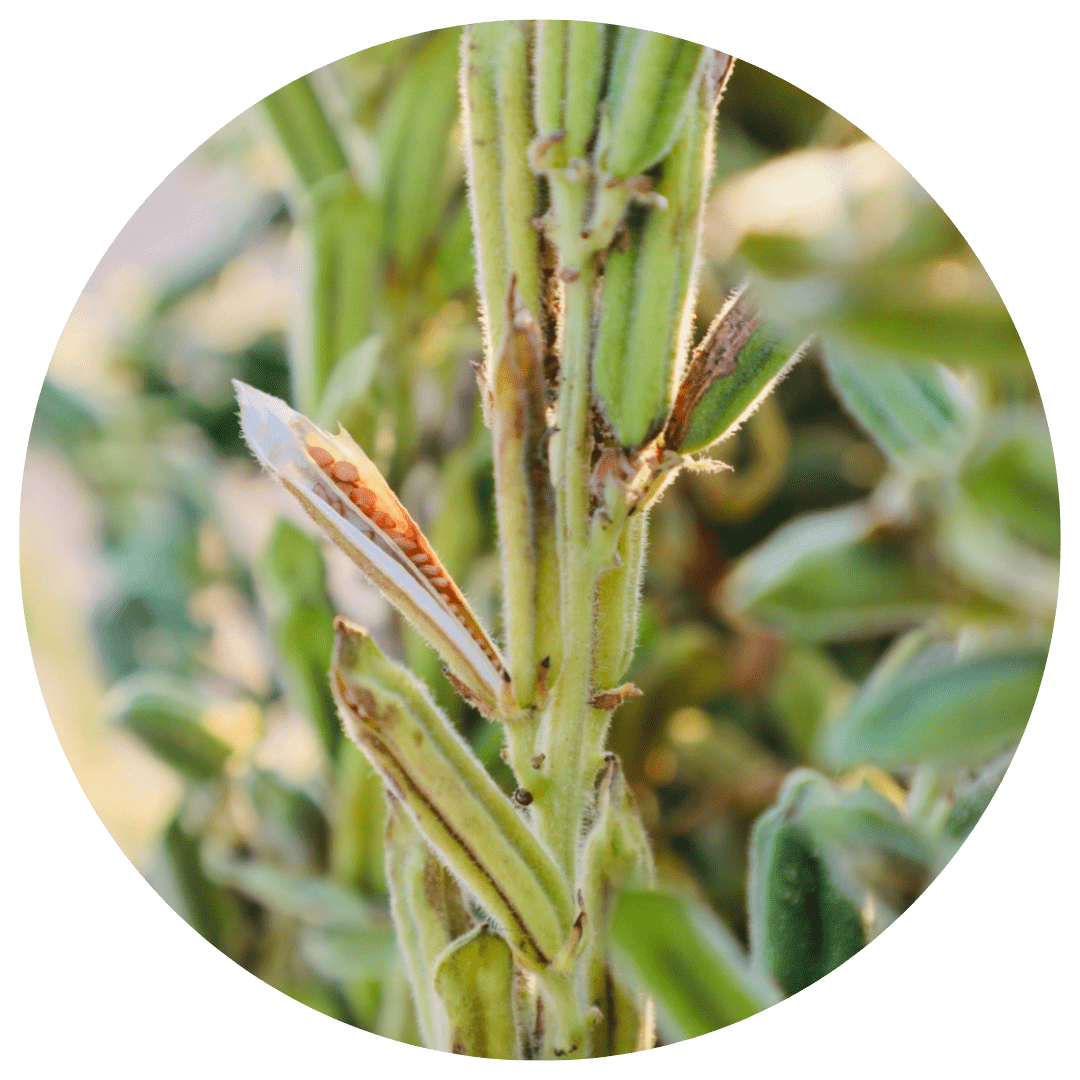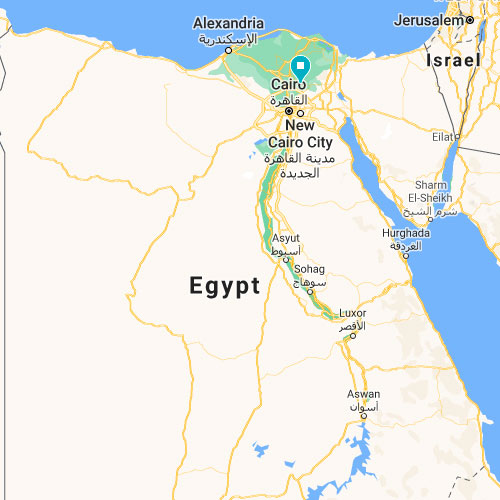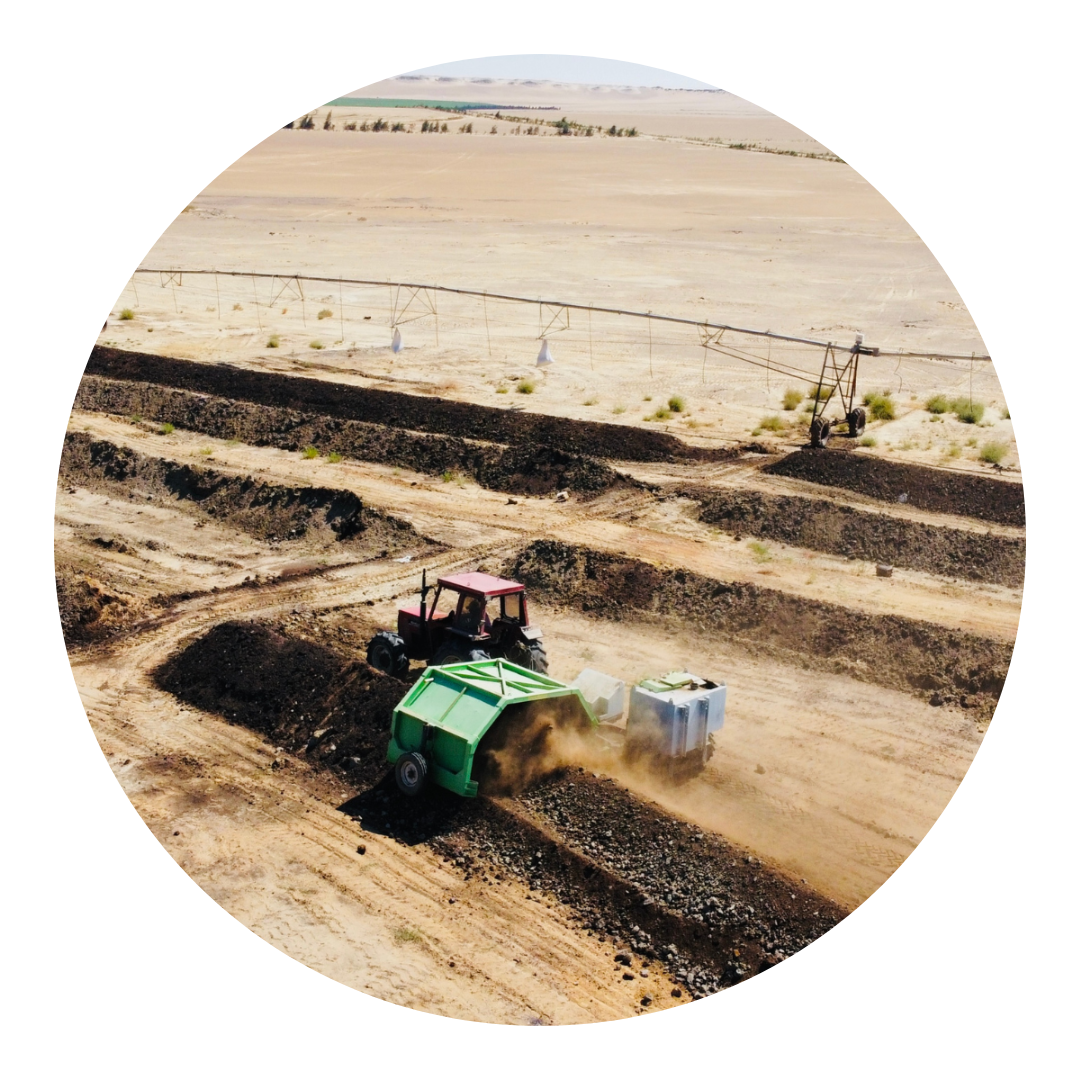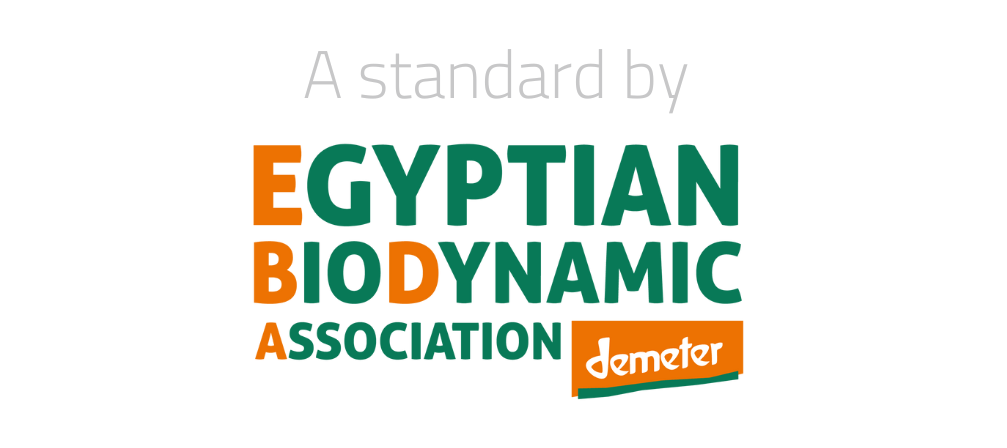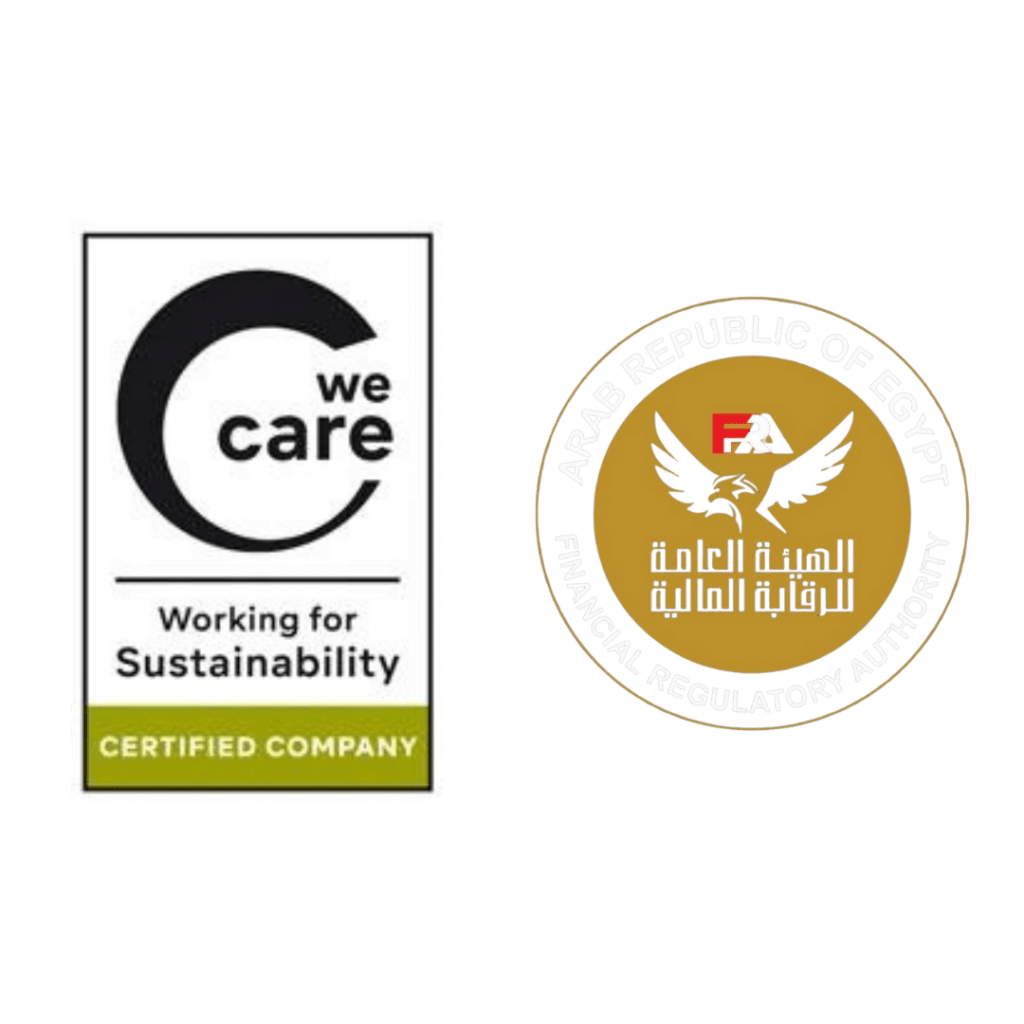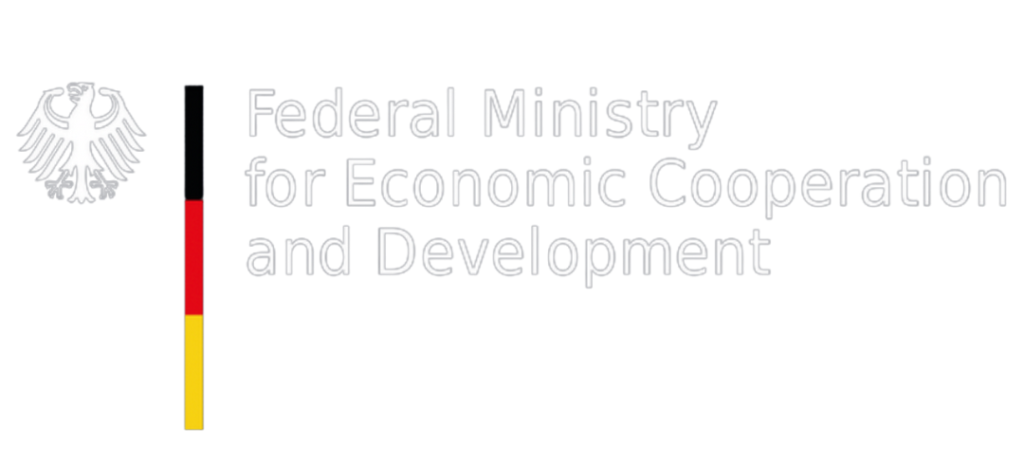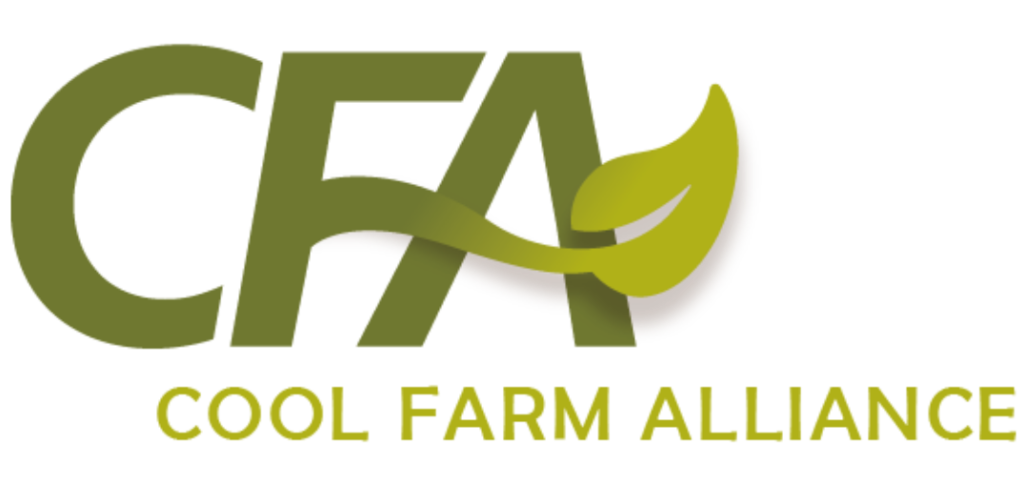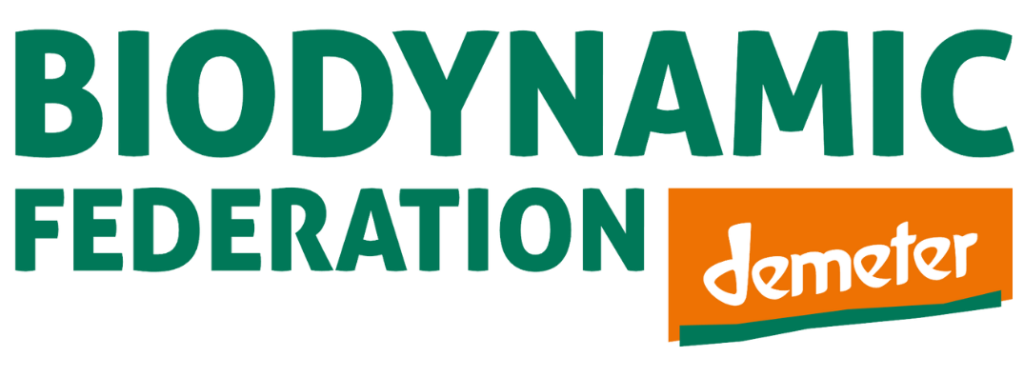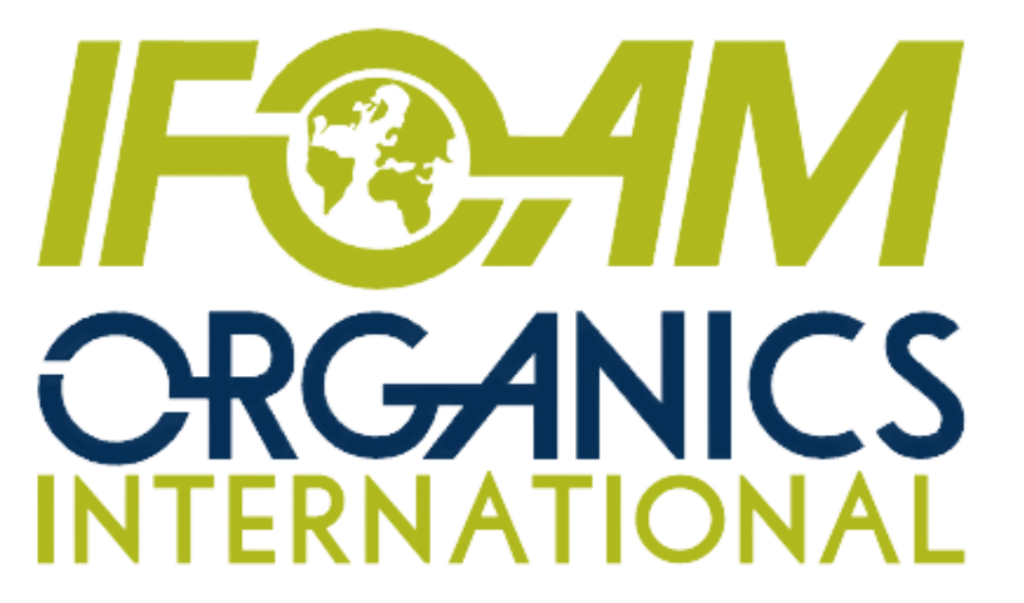Traceback your Product
and explore your
impact on people
& the environment
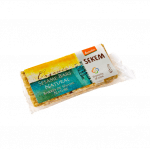
Creating a
FAIR ECONOMY
$ 12,326
are invested in supporting the small farmers of EoL in carbon sequestration and avoidance practices.
Creating a
FAIR SOCIETY
100%
of full-time employees in Sekem who worked to produce this product receive health insurance and safe working conditions.
Life Long Learning &
WELLBEING
10%
of the working time in Sekem is dedicated to art and self-development activities; to promote wellbeing and happiness at work.
Protecting the
ENVIRONMENT
100%
of the people who worked to produce this product throughout the supply chain receive ecological awareness trainings.
Farming
This sesame originated in Egypt, in multiple locations along the Nile delta like Fayoum, Minia, Aswan, and more. It grows on Demeter and organic certified farms, following the holistic principles of Economy of Love and the highest form of organic agriculture known as biodynamic, providing the highest quality products and enriches biodiversity.
The farms are treated as a whole organism in which each element of the farm contribute to its well-being. Plant waste and animal manure are treated into compost that boosts the regenerative ability of the soil and humus formation.
The sesame is cultivated in alignment with the cosmic calendar, which puts it in total harmony with the soil and the cosmic forces.
Economy of Love helps the farmers generate more income with the monetization of carbon sequestration and avoidance, through the EoL Carbon Credits.
Meet The Farmers
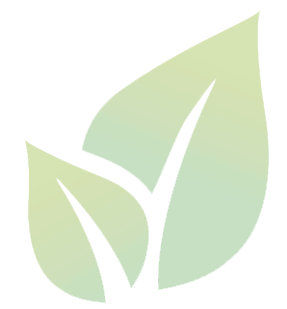
get to the source of production
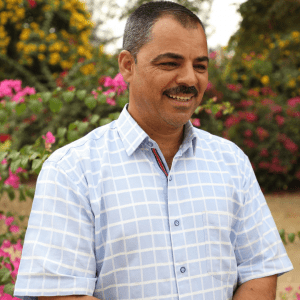
Tarek
Farmer in Giza, Egypt
Tarek Waheed is one of the pioneers in converting to biodynamic agriculture. He started back in 1997 by certifying his farmland, called El-Gezerah, Demeter and is staying ahead of the game by certifying his farm EoL.
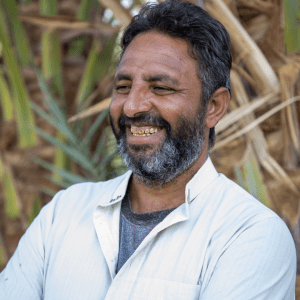
Saber
Farmer in Aswan, Egypt
Saber Mahrous has his biodynamic farmland called Basateen Aswan, in Wadi El-Nokra, close to the city of Aswan in Upper Egypt.
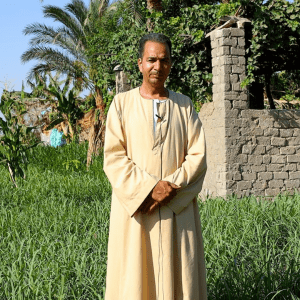
Mahmoud
Farmer in Fayoum Oasis, Egypt
Mahmoud Rabea has two Demeter-certified farms: Mahmoud Rabie and El-Manashee Farms. He’s been growing biodynamic sesame along with other crops since 2003. Mahmoud believes that an Economy of Love is what builds trust between him and the customer with transparency.
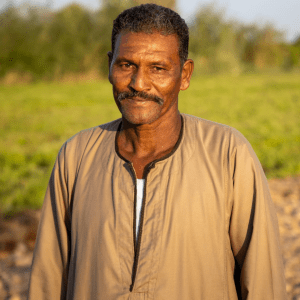
Abdeldaem
Farmer in Aswan, Egypt
Abd-El Dayem is the owner of El-Mostafa Farm, his family’s farmland. He is considered as a pioneer in his village and is active in convincing and supporting his neighbours and friends to adopt sustainable agriculture on their lands.
Processing
After the harvest, the sesame arrives at the Lotus factory on pre-prepared trucks. The sesame goes through the physical inspection and sample testing to ensure the organic quality. It is then sieved, cleaned and color sourced. After that it is roasted to the required degree and it’s ready to be packed in 25kg paper bags and sent to iSiS factory for further processing.
Lotus strives to create fair long-term relationships with the supplying farmers, thus round-table meetings are conducted annually where many farmers gather with the companies to discuss prices, challenges, and draft solutions.
Lotus has improved the efficiency of the machinery equipment at their factories, as they reduced their energy consumption by 8.6%.
Leftovers from the sesame in Lotus that will appear after the sieving process are used as compost, applying the circular economy model by repurposing 90% of its waste into compost.
Packaging
After arriving from Lotus to Isis factory the sesame is poured in a cooking pot along with sugar and melted until reaching 120°. After that the flavors are added to the mixture and mixed well. The last step poured on a large tray to dry out and break into the rectangular shape to finally be packed.
iSiS sells its recyclable no-organic waste to external recycling entities while reducing its waste. iSiS was able to reduce 77% of its no-organic waste as well as reducing 25% of its organic waste.
When entering the dates department in iSiS, you will find confident and active women all around you. The factory makes sure to offer women empowerment sessions that build their capacity and teach them how to voice their needs and individuality.
As part of Sekem holding , the world bank and UN women has granted iSiS the “One Business Community, Equal Opportunity Seal” for their efforts in supporting women and ensuring equality
Packaging Material
The sesame could be responsibly grown and processed, but its packaging material and the companies from which they are sourced do also have a huge impact on the products’ lifetime, and cannot be neglected.
The boxes are made of paper which is produced in a factory in Cairo that promotes worker safety and Corporate Social Responsibility (CSR) activities.
The paper tag and filter fibers are FSC certified sourced from German companies that are constantly researching sustainable packaging alternatives, and sustainable production practices.
During the processing of the dates they are kept in these blue polyethylene bags that are recyclable. iSiS factory sells their non-organic waste left from the processing stage to external recycling entities in Egypt.
Distribution
The sesame bars packages are now ready to be distributed directly to your home, local shops, or overseas.
iSiS always opts for sea freight and only makes the decision to use air freight on the rare occasion that a client orders a small amount that can not be transported by sea.
Drivers have a limit on the number of hours they can drive per day, to ensure their safety
The company’s transportation emissions are calculated and monitored to actively work on finding ways to reduce the emissions and then offsetting the rest that can’t be helped. Check out iSiS’s assigned credits.
Meet The Employees

have a look, who processed, packaged and distributed your product
Marwa
Quality Manager in iSiS
Marwa has been working in the the iSiS factory for more than 8 years. Together with her husband and two children, she lives on the SEKEM farm.
Ahmed
Factory Engineer at SEKEM
Ahmed has been working in SEKEM for four years, and lives right next to the SEKEM farm with his family.
Ahmed
Factory Engineer in Lotus
Hassan is in charge of the cleaning and packing machine in the processing facility of Lotus. He has been working in Lotus for 17 years and enjoys that work is combined with cultural programs.
Abd El Magid
Distributor in SEKEM
Abd El Magid has been an employee in SEKEM for over 15 years. He is responsible for distributing the finished products to stores all over Cairo.
What is the True Price?

Are there hidden costs that the price doesn't reflect?
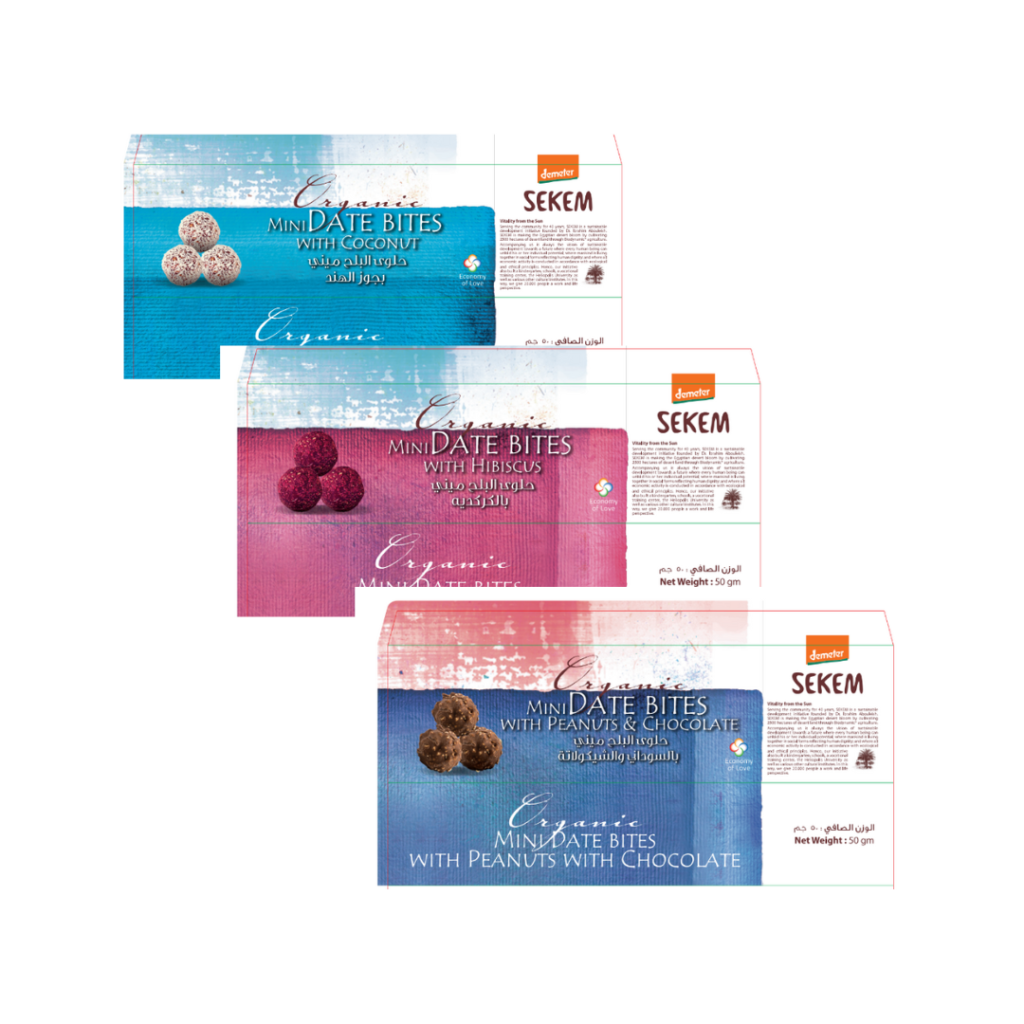
True Price Comparision
Sustainably & ethically produced products add value to society. However, when comparing prices, we don’t take into account the long-term impact of the product. For example, since these Dates are sequestering Co2e it is actually saving up to 0.14USD per kilo! This means that it is cheaper than products that emit Co2e, but so often the price tag doesn’t reflect that.
We encourage you to compare products based on their true price; the price that reflects the hidden costs that we and future generations eventually pay for.

This cultivation of Dates saves up to 0.25 USD/Kilo, by sequestering carbon into the soil.

Indirect Costs include:
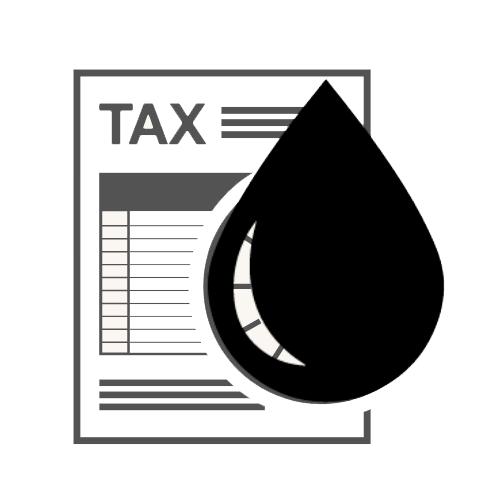
WATER
REPROCESSING COST
Society is paying taxes to clean water sources from agriculture’s chemical fertilizers, pesticides, and herbicides, as well as the irresponsible disposal of wastewater from factories, in order to make it usable/drinkable water.

HEALTH COSTS
The use of pesticides in agriculture eventually affects the human body and therefore increases medical treatment costs.
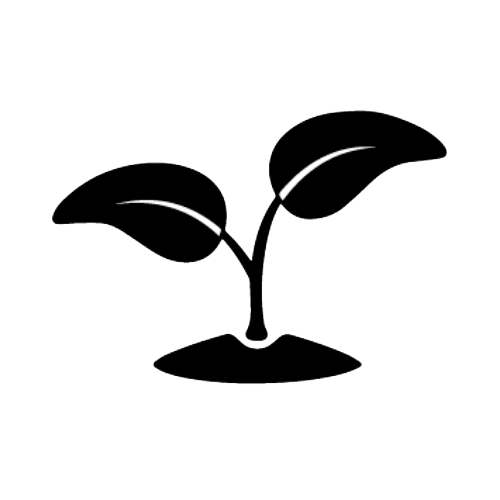
ENVIRONMENTAL
DAMAGE
Society has to bear the long-term cost caused by disruptive agriculture e.g. soil erosion, desertification, and loss of biodiversity.
Locations
Check out the locations of all the farms, companies who were involved in making this product!
discover the origin of your product
Mandisha
Rahma
Sekem Wahat
El-Zahwien
El-shirka El-Dawlia
Oranges
Know more about their Carbon Credit production
Hassan Farm
Peanuts
Know more about their Carbon Credit production
Ewees Farm
Peanuts
Know more about their Carbon Credit production
El-Rouby Farm
Eraky Farm
Sesame
Know more about their Carbon Credit production
Mahmoud Rabie Farm
Sesame
Know more about their Carbon Credit production
El-Feky Farm
Sesame
Know more about their Carbon Credit production
Abou El riesh Farm
Sesame
Abdalah Saad 1 Farm
Sesame
Know more about their Carbon Credit production
Bio Foods (Pvt) Ltd
Coconuts
Joint agri products cyelon
Cinnamon
We hope this information helped you Choose Your Impact!
And make mindful purchasing decisions that leave a positive impact on people and the environment
Interested to know more about the companies above? Click here to download the SEKEM Sustainability Report

